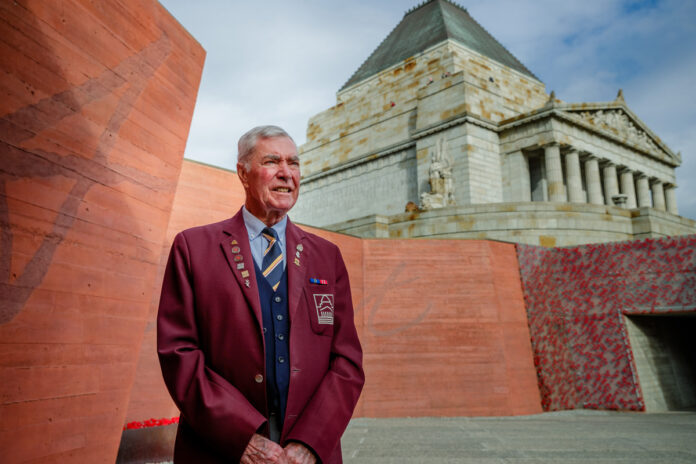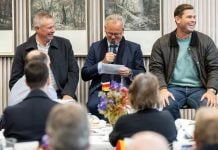When Dr David Holloway OAM (OM 1960) came across a cardboard folder in 1962 purported to be the ‘history’ of the 4th/19th Prince of Wales’s Light Horse Regiment, he didn’t realise he was taking the first step on a 25-year journey which would ultimately highlight the contribution these men made to our nation.
With a family background in the military, and an interest developed through Cadets at Melbourne Grammar School, it was, perhaps, inevitable that David would volunteer to become a member of the Citizen Military Forces (now known as the Army Reserve) soon after leaving school.
David was a reservist in the 4th/19th Regiment on and off for a period extending over 12 years, receiving a medal for his service. During this time, he built close relationships with several members of the 4th Light Horse Regiment who had served in WWI.
“I had always enjoyed history and their stories were fascinating to me,” says David. “When I came across those papers which claimed to be the regimental history, I asked my Troop Leader if I could fix some errors in the record. Twenty-five years later I produced an 800+ page book on the matter – Hooves, Wheels & Tracks”.
David then took on a subsequent challenge. “The 4th Light Horse Regiment is unique because it is the only Australian unit to have served on the three WWI major fronts that Australia was involved in: Gallipoli, Egypt and Palestine, and the Western Front,” explains David. “However, in most historical accounts, their role in France has been largely overlooked and I particularly wanted to address that.” David’s second book – Endure and Fight – was the result.
Awarded an OAM in 2017 in recognition of his contribution to military history organisations, and being the fourth recipient of the Shrine of Remembrance Medal, David is a volunteer guide at the Shrine.
“There are many good reasons why we should be interested in our military history including that of the 4th Light Horse Regiment,” says David. “First and foremost, in difficult circumstances, these men stood up and were counted. This calls up ideas about duty and service at that time which, in my view, may not be as strong today.”
“There is also significance in understanding where we have come from, both as a nation and as individual descendants,” adds David. “What the military have done for us is part of my heritage as an Australian. And, perhaps most importantly, by remembering their contribution, we are showing respect for their sacrifice.”



